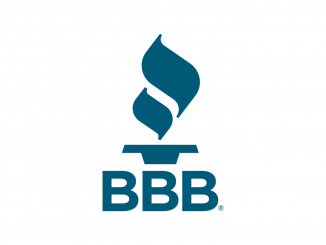
By Kenneth Surbrugg, Director of the Center for Entrepreneurship at Missouri Southern State University
Theodore Roosevelt once said, “It is hard to fail, but it is worse never to have tried to succeed.”
Thomas Edison was a great American inventor who obtained over 1,000 patents for new inventions. He had a good attitude about failure. He worked tirelessly to invent, modify, and improve new product ideas. He once said “I failed my way to success. I have not failed. I have just found 9,999 ways that do not work.”
Milton Hershey failed twice before he successfully started a company that would become famous for making those delicious Hershey chocolate bars. He considered each failure in life a learn opportunity. Milton Hershey once said, “Give them quality. That’s the best kind of advertising in the world.” He figured out what it took to be become successful.
Both of these individuals failed, but both also succeeded from the lessons learned form those failures. There is no guarantee of success, and all of us will fail at one point or another in our lives. But that does not have to define you or your business.
Consider utilizing these ten tips to help you reduce the fear of failure we all feel at times:
- Don’t be afraid people will laugh at you or your new ideas. Fear of rejection is a powerful force. Many people have good ideas that never become viable businesses because they are afraid someone will make fun of them or their attempt at starting a new business. However, just think of all those “crazy” people who are laughing their way to the bank with their successful, innovative ideas.
- Research the need for your product or services. You will need to be realistic when you think about the viability of your idea. There must be sufficient demand for our product or service in order for you to be profitable. Ask yourself why someone would want to buy your product or service instead of the products and services that are currently available. If you can’t think of someway in which your company is superior to existing competitors, you may want to reexamine your idea to see if it really is feasible.
- Observe successful business people. Why are they successful? Do they offer great customer service? Do they sell unique products? Do they love what they do and enjoy life? Are they great managers who deal effectively with their customers and employees? Consider how you may want to emulate some of their actions and attitudes to help you in your business.
- Write a business plan and prepare contingency plans. Whether you currently operate a business, or want to start a business, you need to record your ideas so you can analyze the feasibility of your plan. You should write down realistic goals and then see whether you were able to achieve them. Contingency plans are very useful since economic, social or environmental factors seldom work like you think they should. Bad things happen to good people. How will you deal with adverse situations?
- Hire and deal with confident and positive people. Be careful who you hire. Take your time to effectively interview, check references, and select the best people to be your employees. Don’t hire someone because you feel sorry for them and they need a job. Are they a good fit for you and your company? Hiring the wrong person will only result in added worry and grief for you and the person you hired.
- Make time for your family and friends. Don’t get so tied up in your work and business responsibilities that you don’t have time to enjoy your family and friends. Successful business people have a healthy balance between their family life and work life. Remember that old adage about how you never find anyone on their death bed who wished they had spent one more day at work, just those who wished they had spent more time with their family and friends.
- Continue to educate yourself. No one knows everything. Keep learning. Read new books and articles that deal with your industry, management techniques, marketing methods, tax issues, etc. Plan to attend workshops and take college courses to improve your business skills.
- Join local, regional, and national industry trade associations. People who work in your field can provide you with valuable information that can help you to succeed. Trade associations track national legislative issues and have a large research base of knowledge.
- Network with local business professionals by getting involved with local nonprofit and civic organizations. You will find people to mentor you and help you with your business endeavors at these organizations. Remember, it’s what you know and who you know that helps you to succeed in business.
- Learn from your mistakes by accepting responsibility for your actions and dealing with situations as they occur. Learning to say those magic words, “I’m sorry. I was wrong. I made a mistake,” can be difficult, but not impossible. People will respect you more if you are willing to admit you were wrong and then work to rectify the situation. This can be a great way to reduce stress in your life.
According to William Shakespeare, “Our doubts are traitors, and make us lose the good we oft might win, by fearing to attempt.” As you move forward with your business (or idea), do your homework, research your ideas carefully, seek the advice of others, and then, if it seems reasonable, go for it. As they say, “Nothing ventured, nothing gained.”








Be the first to comment